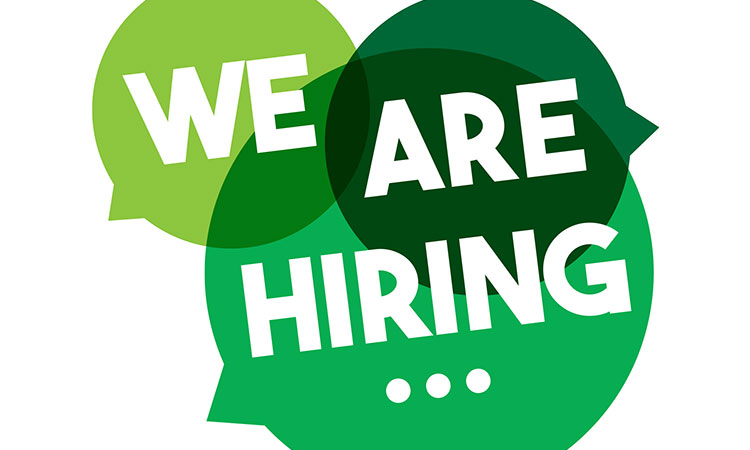Hiring Feb 26, 2014
Hiring an Associate Dentist Who Requires Visa Sponsorship
Long a part of medical doctor staffing, dentists requiring visa sponsorship have come to represent a much larger segment of the available work force. Often these associate candidates bring extensive training and geographic flexibility that is not easily found in the domestic applicant pool. Also, they often offer a longer-term associate solution, as the visa process discourages the kind of “job-hopping” that is more routine with traditional early career dentists.
Whether a practice is considering sponsoring a new Visa or transferring an existing Visa, the process is not as intimidating as it may appear. Our friend Ken Gauvey of The Law Practice of Ken C. Gauvey (http://www.gauveylaw.com/) provides the following overview of the Visa sponsorship process from the employer’s perspective. For more information or to consult with an immigration lawyer, please contact Ken Gauvey at www.gauveylaw.com.
Hiring Doctors in the Era of Health Care Shortages
The U.S. faces a national shortage of doctors. In fact, the Association of American Medical Colleges released a report indicating that the U.S. shortage of qualified physicians is at 20,000 now with half of the nation’s doctors being over the age of 50. As a result, that shortage, even before the introduction of the Affordable Care Act, is expected to grow exponentially in the coming years. A study in the Annals of Family Medicine projects that the country will need 52,000 more primary care physicians by 2025. According to the Journal of the American Medical Association, only one in five graduating medical residents plan to go into primary care. In the face of this shortage, it is clear that hospitals in the U.S. will have to rely more on qualified foreign doctors to fill this gap.
Unfortunately, the means to hire foreign nationals are limited and complex. In general, when hiring a foreign national doctor, the immigration timeline follows a predetermined schedule. In many cases, a doctor will need a J-1 waiver, followed by an H-1B visa, followed by some form of permanent residency sponsorship. Doctors who come to the U.S. to finish their studies commit to a two-year period of practicing medicine in their home country. The J-1 waiver is required to waive that two-year commitment. In exchange, those doctors agree to work for three years in the U.S. in a medically underserved area. However, once the waiver is approved, the doctor still needs an H-1B visa to actually work in the U.S.
The J-1 Waivers are limited. At present, each state only gets 30 of them. Moreover, each state has its own processes and procedures developed by the state department of health in place to determine who gets one of the waivers. Some states require the putative employer to demonstrate six months of recruiting efforts. Other states have few actually requirements outside of an application. Some states process the waivers at no cost to the employer; others have large fees associated with waiver requests. Having knowledgeable counsel who is familiar with the requirements for multiple states is of significant benefit to the employer. Once the state approves the request, the U.S. Department of State has to approve it. This process generally takes six to ten weeks. Following this, the Department of Homeland Security (DHS), through USCIS provides the final approval.
Concurrent with the review, the employer can file for the H-1B, which is the visa that actually allows the doctor to work. With premium processing, the H-1B can be approved, along with the final waiver, two to three weeks after the Department of State issues its approval. The H-1B is valid for three years, and permits one three year extension. During this period, the employer has to make a determination on whether to sponsor the employee for permanent residency.
There are many ways to obtain permanent residency through an employment relationship. The two most prominent ways are the National Interest Waiver (NIW), and Labor Certification. If a doctor subject agrees to work for five years (two in addition to the typical J-1 service requirement) in a medically underserved area, the doctor can immediately apply for a NIW. Additionally, assuming an immigrant visa is immediately available; the physician can also file for permanent residence, though the final approval of permanent residence is granted only upon proof of five years of service. An additional benefit afforded by the NIW and concurrent application for permanent residence is that the immediate family of the physician may apply for work authorization. Moreover, this process avoids the Labor Certification process which is time consuming and expensive.
The Labor Certification process requires the employer to conduct a specific test of the labor market to determine whether there are any qualified, ready, willing and able U.S. physicians to fill the position. The employer must conduct, at minimum, a two month recruiting effort using methods dictated by the U.S. Department of Labor. The employer must conduct a good faith recruiting campaign using five different types of recruitment efforts such as newspaper advertisements, web advertisements, etc. The employer has to interview minimally qualified candidates and if one candidate meets the qualifications the Labor Certification process fails. Therefore, this process requires an in depth review of the job description, and strict adherence to the regulatory requirements for the recruiting campaign. At the end of the recruiting effort, assuming no minimally qualified candidates are found, the employer, through their attorney, can file the Labor Certification application asking the DOL to certify the position. The DOL can request an audit, approve or deny the application, or have the employer redo the recruitment process under DOL supervision. Once approved, the employer can file the employment-based visa application. Following approval of the visa, and the completion of the three-year waiver requirement, the doctor can then file for permanent residency, subject only to the per country limitations in this process.
The process for hiring foreign national doctors is complex, but manageable with competent legal counsel. Employers should not shy away from engaging in this process especially as the shortage of doctors in this country continues to grow. However, employers do need to know the options when seeking to hire doctors who are subject to the J visa requirements. Competent legal counsel can manage the J waiver process and the H-1B process; and provide legal guidance throughout the Labor Certification process; and can prepare the remaining immigration filings. Therefore, while hiring doctors can be complex, employers cannot afford to shy away from the process in this era of health care shortage.
For more information or to consult with an immigration lawyer, please contact Ken Gauvey at www.gauveylaw.com.











